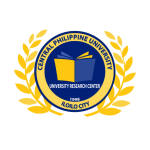- by Lynn J. Pareja (completed August 2005)
ABSTRACT
The main objective of this study was to find out the status of academic subjects with service-learning(S-L) components in the curricular offerings of the different colleges of Central Philippine University dining the academic year of 2004-2005. A checklist was provided to identify the general characteristics, service-activities extended and S-L models of academic subjects with S-L components. Only academic subjects with available syllabi/course descriptions during the first semester of Academic Year 2004-2005 were included in the descriptive analysis using frequency distributions. The results and discussions were made only as far as the general characteristics, service-activities extended, and S-L models of these identified academic subjects with S-L components were concerned. Results revealed that (a) Academic subjects with S-L components contained common characteristics of S-L; (b) Most academic subjects identified with S-L components were linked to academic content and standards, (c) Most academic subjects with S-L components provided opportunity for students to use skills and knowledge in real-life situations and extended training beyond the classrooms and into the community; (d) More than 50 percent of the academic subjects identified with S-L components were found in the collegiate level; (e) More than 70 percent of the 155 academic subjects with S-L components had provided learning through active participation in service experiences and also provided structured time for students to reflect by thinking, discussing and/or writing about their experiences; (f) More than 50 percent of the academic subjects with S-L components had extended youth/group leadership development and Environment Sanitation programs; (g) Many academic subjects with S-L components did not extend all the services specified in the list of service-activities provided; (h) Adult/Non-Formal/Functional Literacy classes or programs as well as Repair and Construction of Infrastructures/buildings program were the least of the service-activities extended by academic subjects with S-L components; (i) More than one-fifth of the academic subjects with S-L components belong to the Introductory courses for S-L, followed by the Service-Centered model, Disciplinary Capstone model, and the 4th Credit-Option model for S-L; (j) There was no academic subject with S-L component being identified under the Problem-Based model for S-L.
